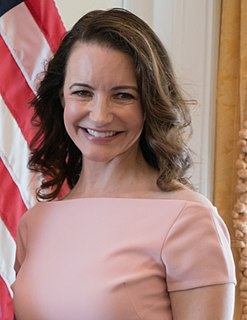A Quote by Mark Sisson
Related Quotes
We've just done a five-day retreat at the Chopra centre and people who went to the meditation retreat saw their anti-ageing enzyme increase by 40 per cent. We looked at their 23,000 genes and the self-healing genes were up regulated and all the genes related to heart disease, cancer and inflammatory diseases, diabetes, they all went down within five days.
Yes, genes are important for understanding our behavior. Incredibly important - after all, they code for every protein pertinent to brain function, endocrinology, etc., etc. But the regulation of genes is often more interesting than the genes themselves, and it's the environment that regulates genes.
Individuals are not stable things, they are fleeting. Chromosomes too are shuffled into oblivion, like hands of cards soon after they are dealt. But the cards themselves survive the shuffling. The cards are the genes. The genes are not destroyed by crossing-over, they merely change partners and march on. Of course they march on. That is their business. They are the replicators and we are their survival machines. When we have served our purpose we are cast aside. But genes are denizens of geological time: genes are forever.
And if you listen to Irish music, they say that kilts came from the middle east. So really I'm an Arab. If you listen to the way someone like Sinead O'Connor sang. It could be Muslim. You know that angst that sort of ****. That wail. I think it's in our genes. I think certain stuff is in our genes, like nobody can dance like a black guy. It's in their genes. So we don't have oil, but we have poetry.
Recently, results of the Human Genome Project have shattered one of Science's fundamental core beliefs, the concept of genetic determinism. We have been led to believe that our genes determine the character of our lives, yet new research surprisingly reveals that it is the character of our lives that controls our genes. Rather than being victims of our heredity, we are actually masters of our genome.
Of course our genes will make some capacities very much easier to learn than others, and of course our genes themselves are not learned. But the point remains that genes themselves are not cognitive capacities, and that anything worth calling a cognitive capacity will depend to some degree on learning and so not be innate.



































